Strictly Personal
Is Anas The Bill Cosby Of Ghana?
There is no doubt that Heath Cliff Huxtable and his family in the sitcom Cosby show made great impressions on our lives over the last couple of decades
Published
6 years agoon
There is no doubt that Heath Cliff Huxtable and his family in the sitcom Cosby show made great impressions on our lives over the last couple of decades. The physician and his attorney wife gave us all the important reasons for making education a priority in life and building a sound character to become good citizens. The spinoff of the show, ‘A different World” also maintained the same ethos where building of refined individuals capable of making wise decisions in a college environment was the theme.
Bill Cosby, the man who play Heath Cliff Huxtable, did a lot of good and I dare say single handedly put a lot of kids through college. The shows were an inspiration to many. Through the show, Bill Cosby made it possible for the average kid, especially the minority to believe that college education and staying on the right side of the law inspires a top middle class and beyond life style. I can credit my own zest and desires for further education to some of the show’s influence.
But the public perception of the man we adored so much, Cliff Huxtable, hid behind a dark side of Bill Cosby. Bill Cosby had all the good intentions to inspire society through comedy, but the demons of his innate character emerged to hunt him. It took another comedian to expose him.
Is Kennedy Agyapong the comedian to expose Anas? Kennedy is a loud mouth politician. He hasn’t got the training in fine language and one is tempted to immediately dismiss him as a braggart. He beats his chest like a gorilla in the forest, the king Kong of Ghana. Recently he has been crying foul, showing his own video of Anas allegedly involved in criminal acts. Is Kennedy Agyapong peeling the surface of something to look deeply into or is he blowing hot air? Not to discount the great work done by Anas, (as in the Cosby Show). The Anas exposĕ is admirable, but is he hiding his own demons?
Is Kwaku Baako standing by his man as Camellia Cosby continues to stand by Bill Cosby even as the courts prove him guilty? 64 women came forward to accuse Bill Cosby of inappropriate behavior, only one was admissible in court, yet, that was enough to convict Bill Cosby. Kennedy claims there are several people allegedly running to him with stories about Anas collecting bribe from them. These allegations should be thoroughly investigated, and even if one is found to be true, Anas should equally face the law. However, if these are found to be false, that, Honorable Kennedy Agyapong and his cronies fraudulently pieced clips together to tarnish the image of Anas, the honorable must be dealt with squarely.
Anas has filed a defamation suit of GHC25 million against Honorable Kennedy Agyapong. The honorable is quoted as saying; “GHC25million, I sit on that shit”. The pronouncements of the MP, Kennedy Agyapong, can often be distasteful. It is alleged that he was such a fine gentleman when he was a taxi driver in New York. Ghana politics must have rubbed him of his finesse. I hope the honorable will take a leaf from what Mrs. Obama said; ‘When they go low, you go high” but no, Kennedy Agyapong will wallow in the mud with his adversaries.
A breakdown in our legal system.
The Anas investigative work has been warranted because of the disregard for law enforcement in our society. The lack of political will on the part of our politicians and the legislature to act. Corruption and some traditional customs have rendered our laws and legal system impotent. As a matter of fact, everything Anas has uncovered hasn’t been a secret. They were and still are well known practices in the country that the institutions and legal apparatus have failed to address.
The entire country knows the Chiefs in Ghana sell land to multiple bidders. This is criminal, but how many Chiefs have been prosecuted, let alone jailed for this crime. How many Chiefs (including Otumfuo) have called a town hall meeting to declare to their people the cedi amount of the number of plots or acres of the township land that have been sold or royalties realized from companies of which the town or village will use for some identified development projects? None, (no accountability!).
Land in most villages and towns are sold as the Chief’s personal property, just as ministers use government coffers as their personal bank accounts. This behavior, big and small is paramount with people in positions of power and in law enforcement in Ghana. The partisan politics of cover ups is what has made necessary such sting operations, undercover investigation and set ups that Anas is using. The average Ghanaian is at a loss, running to churches, rivers and fetish priests looking for answers, all because, the laws in the land do not work to protect them.
Apparently, everything that happens in Ghana is spiritual and one needs to seek a spiritual doctor for directions. The judiciary system is like our hospitals in Ghana, “hit and miss”; one may need to try a few hospitals before finding a bed. And when a bed is found, a doctor may not be available or no diagnostic tools available for the doctor to work with. When one reports a case to the police, in many cases one has to pay for the transportation of the officer to attend to the case.
Read Also: The truth about being African versus dressing African
The bigger picture of this contention between Anas and Honorable Kennedy Agyapong is all because the laws in the land are not enforceable; mostly in conflict with tradition and culture. Kennedy Agyapong, an honorable minister of parliament, a member of the legislative branch, could announce on national television and to the world that he is married but has a girlfriend; proudly confirming that his wife knows he has a girlfriend and its part of Ghana’s tradition. So it is part of Ghana’s tradition to have stool wives.
So it is part of Ghana’s tradition to have stool servants or shrine slaves. So it is part of Ghana’s tradition for some chiefs to adjudicate on some cases. So it is part of Ghana tradition to find an influential elder to get you off the hook even when guilty. So it is part of Ghana’s tradition to send gifts to the Chiefs. In some cases, the Chiefs have aids who arrange for such “gifts’. No wonder even our judges are confused. Some of the judges claimed they acted in the traditional capacity to receive gifts but were not bribed.
Even some journalists (including Captain Smart who claims to fight corruption) gets confused discussing the subject; a gift for ‘influence peddling’ and a bribe. It is wrong and must be punishable to use the office of the state to travel and conduct transactions as if its private business. It is unethical if not criminal to use one’s position in the capacity of public service to receive gifts, solicited or unsolicited in any form with the intent to influence an outcome.
It is time Ghanaians evolve from those traditions that bring shame, turning the country into a bunch of jokers and elevate those elements of our culture that speak to Ghana as a constitutional democratic republic; a country with enforceable laws that govern the land. For this to be realized, Ghanaians must rise from the grassroots to the top; demanding accountability from the Chiefs to the ministers and to the President, call for a change to some of the antiquated traditions and customs that disadvantage the commoner and fly in the face of human rights, else there will be no progress in Ghana.
Commentator…..George Oteng Attakora
You may like
-


Ghana mourns as top gospel music icon Koda passes away
-
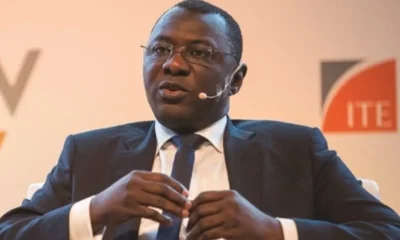

Ghana’s finance minister anticipates debt restructuring MoU with lenders
-
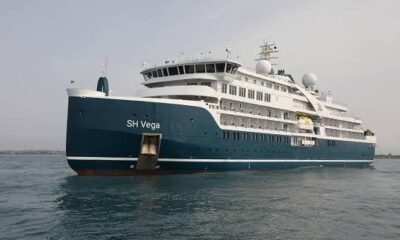

Ghana’s Elmina Fishing Harbour welcomes first-ever cruise liner SH Vega
-
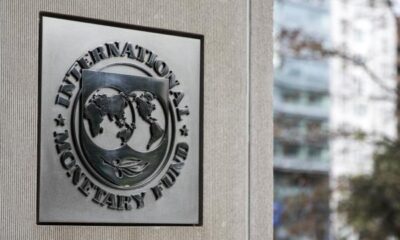

Ghana’s bondholders deal ‘a matter of time’— IMF
-
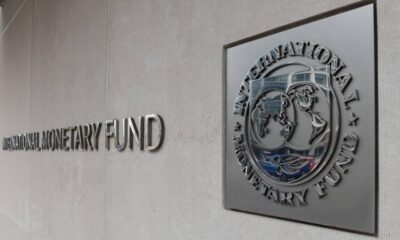

Ghana confident over bondholder deal as IMF completes review
-
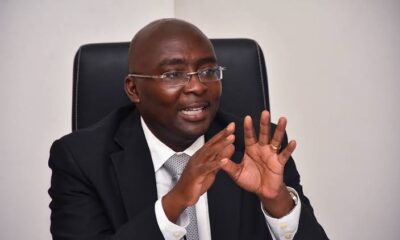

Ghana’s VP Bawumia throws weight behind anti-LGBTQ campaign
Strictly Personal
Air Peace, capitalism and national interest, By Dakuku Peterside
Published
1 week agoon
April 16, 2024
Nigerian corporate influence and that of the West continue to collide. The rationale is straightforward: whereas corporate activity in Europe and America is part of their larger local and foreign policy engagement, privately owned enterprises in Nigeria or commercial interests are not part of Nigeria’s foreign policy ecosystem, neither is there a strong culture of government support for privately owned enterprises’ expansion locally and internationally.
The relationship between Nigerian businesses and foreign policy is important to the national interest. When backing domestic Nigerian companies to compete on a worldwide scale, the government should see it as a lever to drive foreign policy, and national strategic interest, promote trade, enhance national security considerations, and minimize distortion in the domestic market as the foreign airlines were doing, boost GDP, create employment opportunities, and optimize corporate returns for the firms.
Admitted nations do not always interfere directly in their companies’ business and commercial dealings, and there are always exceptions. I can cite two areas of exception: military sales by companies because of their strategic implications and are, therefore, part of foreign and diplomatic policy and processes. The second is where the products or routes of a company have implications for foreign policy. Air Peace falls into the second category in the Lagos – London route.
Two events demonstrate an emerging trend that, if not checked, will disincentivize Nigerian firms from competing in the global marketplace. There are other notable examples, but I am using these two examples because they are very recent and ongoing, and they are typological representations of the need for Nigerian government backing and support for local companies that are playing in a very competitive international market dominated by big foreign companies whose governments are using all forms of foreign policies and diplomacy to support and sustain.
The first is Air Peace. It is the only Nigerian-owned aviation company playing globally and checkmating the dominance of foreign airlines. The most recent advance is the commencement of flights on the Lagos – London route. In Nigeria, foreign airlines are well-established and accustomed to a lack of rivalry, yet a free-market economy depends on the existence of competition. Nigeria has significantly larger airline profits per passenger than other comparable African nations. Insufficient competition has resulted in high ticket costs and poor service quality. It is precisely this jinx that Air Peace is attempting to break.
On March 30, 2024, Air Peace reciprocated the lopsided Bilateral Air Service Agreement, BASA, between Nigeria and the United Kingdom when the local airline began direct flight operations from Lagos to Gatwick Airport in London. This elicited several reactions from foreign airlines backed by their various sovereigns because of their strategic interest. A critical response is the commencement of a price war. Before the Air Peace entry, the price of international flight tickets on the Lagos-London route had soared to as much as N3.5 million for the economy ticket. However, after Air Peace introduced a return economy class ticket priced at N1.2 million, foreign carriers like British Airways, Virgin Atlantic, and Qatar Airways reduced their fares significantly to remain competitive.
In a price war, there is little the government can do. In an open-market competitive situation such as this, our government must not act in a manner that suggests it is antagonistic to foreign players and competitors. There must be an appearance of a level playing field. However, government owes Air Peace protection against foreign competitors backed by their home governments. This is in the overall interest of the Nigerian consumer of goods and services. Competition history in the airspace works where the Consumer Protection Authority in the host country is active. This is almost absent in Nigeria and it is a reason why foreign airlines have been arbitrary in pricing their tickets. Nigerian consumers are often at the mercy of these foreign firms who lack any vista of patriotism and are more inclined to protect the national interest of their governments and countries.
It would not be too much to expect Nigerian companies playing globally to benefit from the protection of the Nigerian government to limit influence peddling by foreign-owned companies. The success of Air Peace should enable a more competitive and sustainable market, allowing domestic players to grow their network and propel Nigeria to the forefront of international aviation.
The second is Proforce, a Nigerian-owned military hardware manufacturing firm active in Rwanda, Chad, Mali, Ghana, Niger, Burkina Faso, and South Sudan. Despite the growing capacity of Proforce in military hardware manufacturing, Nigeria entered two lopsided arrangements with two UAE firms to supply military equipment worth billions of dollars , respectively. Both deals are backed by the UAE government but executed by UAE firms.
These deals on a more extensive web are not unconnected with UAE’s national strategic interest. In pursuit of its strategic national interest, India is pushing Indian firms to supply military equipment to Nigeria. The Nigerian defence equipment market has seen weaker indigenous competitors driven out due to the combination of local manufacturers’ lack of competitive capacity and government patronage of Asian, European, and US firms in the defence equipment manufacturing sector. This is a misnomer and needs to be corrected.
Not only should our government be the primary customer of this firm if its products meet international standards, but it should also support and protect it from the harsh competitive realities of a challenging but strategic market directly linked to our national military procurement ecosystem. The ability to produce military hardware locally is significant to our defence strategy.
This firm and similar companies playing in this strategic defence area must be considered strategic and have a considerable place in Nigeria’s foreign policy calculations. Protecting Nigeria’s interests is the primary reason for our engagement in global diplomacy. The government must deliberately balance national interest with capacity and competence in military hardware purchases. It will not be too much to ask these foreign firms to partner with local companies so we can embed the technology transfer advantages.
Our government must create an environment that enables our local companies to compete globally and ply their trades in various countries. It should be part of the government’s overall economic, strategic growth agenda to identify areas or sectors in which Nigerian companies have a competitive advantage, especially in the sub-region and across Africa and support the companies in these sectors to advance and grow to dominate in the African region with a view to competing globally. Government support in the form of incentives such as competitive grants ,tax credit for consumers ,low-interest capital, patronage, G2G business, operational support, and diplomatic lobbying, amongst others, will alter the competitive landscape. Governments and key government agencies in the west retain the services of lobbying firms in pursuit of its strategic interest.
Nigerian firms’ competitiveness on a global scale can only be enhanced by the support of the Nigerian government. Foreign policy interests should be a key driver of Nigerian trade agreements. How does the Nigerian government support private companies to grow and compete globally? Is it intentionally mapping out growth areas and creating opportunities for Nigerian firms to maximize their potential? Is the government at the domestic level removing bottlenecks and impediments to private company growth, allowing a level playing field for these companies to compete with international companies?
Why is the government patronising foreign firms against local firms if their products are of similar value? Why are Nigerian consumers left to the hands of international companies in some sectors without the government actively supporting the growth of local firms to compete in those sectors? These questions merit honest answers. Nigerian national interest must be the driving factor for our foreign policies, which must cover the private sector, just as is the case with most developed countries. The new global capitalism is not a product of accident or chance; the government has choreographed and shaped it by using foreign policies to support and protect local firms competing globally. Nigeria must learn to do the same to build a strong economy with more jobs.
Strictly Personal
This is chaos, not governance, and we must stop it, By Tee Ngugi
Published
2 weeks agoon
April 10, 2024
The following are stories that have dominated mainstream media in recent times. Fake fertiliser and attempts by powerful politicians to kill the story. A nation of bribes, government ministries and corporations where the vice is so routine that it has the semblance of policy. Irregular spending of billions in Nairobi County.
Billions are spent in all countries on domestic and foreign travel. Grabbing of land belonging to state corporations, was a scam reminiscent of the Kanu era when even public toilets would be grabbed. Crisis in the health and education sectors.
Tribalism in hiring for state jobs. Return of construction in riparian lands and natural waterways. Relocation of major businesses because of high cost of power and heavy taxation. A tax regime that is so punitive, it squeezes life out of small businesses. Etc, ad nauseam.
To be fair, these stories of thievery, mismanagement, negligence, incompetence and greed have been present in all administrations since independence.
However, instead of the cynically-named “mama mboga” government reversing this gradual slide towards state failure, it is fuelling it.
Alternately, it’s campaigning for 2027 or gallivanting all over the world, evoking the legend of Emperor Nero playing the violin as Rome burned.
A government is run based on strict adherence to policies and laws. It appoints the most competent personnel, irrespective of tribe, to run efficient departments which have clear-cut goals.
It aligns education to its national vision. Its strategies to achieve food security should be driven by the best brains and guided by innovative policies. It enacts policies that attract investment and incentivize building of businesses. It treats any kind of thievery or negligence as sabotage.
Government is not a political party. Government officials should have nothing to do with political party matters. They should be so engaged in their government duties that they literally would not have time for party issues. Government jobs should not be used to reward girlfriends and cronies.
Government is exhausting work undertaken because of a passion to transform lives, not for the trappings of power. Government is not endless campaigning to win the next election. To his credit, Mwai Kibaki left party matters alone until he had to run for re-election.
We have corrupted the meaning of government. We have parliamentarians beholden to their tribes, not to ideas.
We have incompetent and corrupt judges. We have a civil service where you bribe to be served. Police take bribes to allow death traps on our roads. We have urban planners who plan nothing except how to line their pockets. We have regulatory agencies that regulate nothing, including the intake of their fat stomachs.
We have advisers who advise on which tenders should go to whom. There is no central organising ethos at the heart of government. There is no sense of national purpose. We have flurries of national activities, policies, legislation, appointments which don’t lead to meaningful growth. We just run on the same spot.
Tee Ngugi is a Nairobi-based political commentator
EDITOR’S PICK


Tanzania’s auto-tech startup Spana is simplifying car maintenance— CEO
Tanzania’s auto-tech startup, Spana, has developed a mobile application for a bouquet of automobile services, enabling individual car owners and...


Nollywood thrown into mourning as another veteran actor Zulu Adigwe passes on
The Nigerian movie industry, popularly known as Nollywood, has once again been thrown into mourning with the death of veteran...


Zambian FA boss, Gen.Sec arrested over alleged laundering of K341,902
President of the Football Association of Zambia (FAZ), Andrew Kamanga, has been arrested along with the Secretary-General and two other...
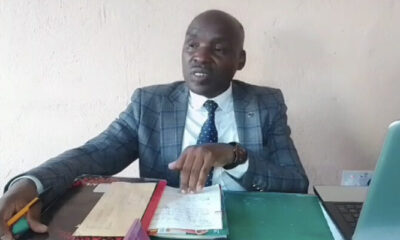

Luapula businessman, Munsanje, reflects on media freedoms and freedom of expression
As stakeholder engagement intensifies regarding the ongoing project to amplify voices on media freedom, freedom of expression, and digital rights,...
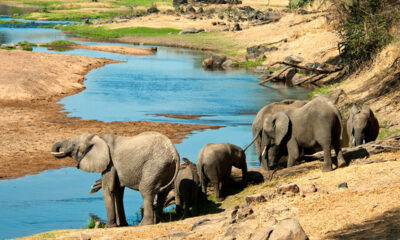

World Bank stops tourism fund to Tanzania’s Ruaha park. Here’s why
A spokesperson for the World Bank said on Wednesday that the lender had stopped all new payments from a $150...


‘It would be risky to release Binance executive from custody risky’, Nigerian govt says
Nigeria’s anti-corruption agency, the Economic and Financial Crimes Commission (EFCC), believes admitting the detained executive of cryptocurrency firm, Binance Holdings...
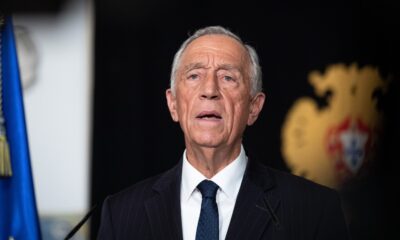

President de Sousa insists Portugal must ‘pay costs’ of slavery, colonial crimes
Following recent conversations around reparations to countries with colonial heritage, Portuguese President, Marcelo Rebelo de Sousa, has added his voice...


Nigeria’s antigraft agency EFCC may try 300 forex racketeers
The Economic and Financial Crimes Commission (EFCC), Nigeria’s anti-corruption body, could go after 300 forex criminals who trade on a...
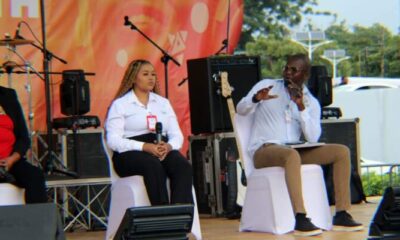

Institute calls for responsible social media usage among youths
Smart Zambia Institute has reiterated the importance of youths to use social media responsibly. Senior Business Applications Officer at the...
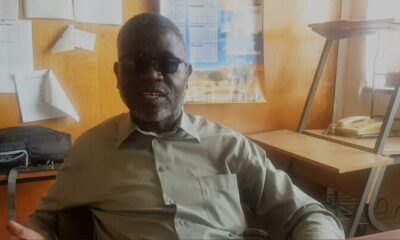

Digital Rights: Policy enthusiast, Jere, advocates self-regulation as alternative to govt regulations
Copperbelt businessman and mining policy advocate, George Jere, has highlighted the importance of self-regulation in the expanding digital media landscape,...
Trending
-

 Musings From Abroad22 hours ago
Musings From Abroad22 hours agoPresident de Sousa insists Portugal must ‘pay costs’ of slavery, colonial crimes
-

 Culture2 days ago
Culture2 days agoEgypt reclaims 3,400-year-old stolen statue of King Ramses II
-

 Metro2 days ago
Metro2 days agoNigerian govt shuts Chinese supermarket over ‘no-Nigerian shopper’ allegation
-
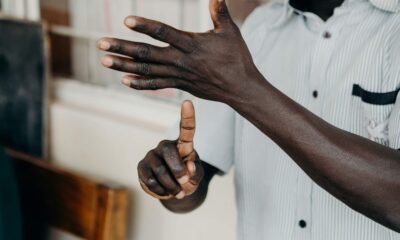
 Metro2 days ago
Metro2 days agoSign language interpreter, Kunda, seeks inclusivity in media rights agenda (video)


